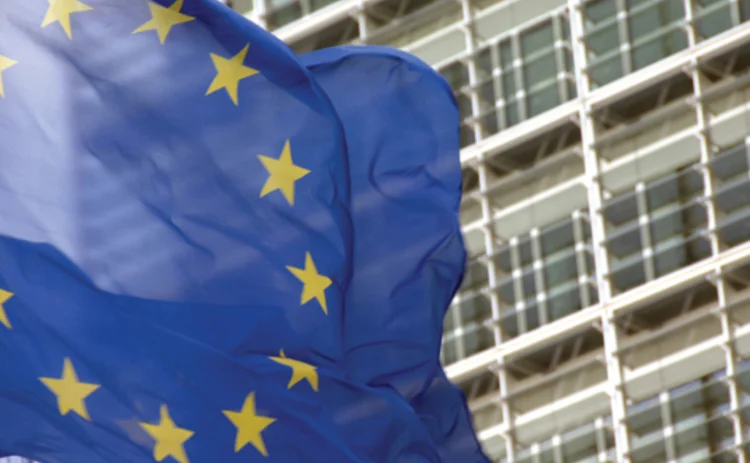European Commission Proposes Trade Secrets Law Harmonization

The new rules, says the EC, will make it easier for companies to defend themselves against misappropriation of their trade secrets in national courts, to seek injunctions against products using their property, and to seek damages for theft and misuse. Under the terms of the proposal, the "trade secrets" phrase encompasses both technical and commercial endeavors designed to provide business and commercial advantages to firms in both the short and the long term.
"Cybercrime and industrial espionage are unfortunately part of the reality that businesses in Europe face every day," says Michel Barnier, commissioner for internal market and services at the EC. "We have to make sure our laws move with the times and that the strategic assets of our companies are adequately protected against theft and misuse."
The specific focus of the proposed rule does not cover intellectual property, which grants exclusivity to the originator. Instead, they are specifically designed to guard against theft, rather than reverse engineering or commercial imitation, and are seen as complementary to intellectual property rights.
Past Precedent
In terms of the global financial services sector, banks are likely to welcome a clearer definition of what constitutes a firm's trade secrets, along with appropriate lines of redress. Recently, a number of institutions have struggled in courts, both in Europe and the US, over alleged code theft related to either trading algorithms, or engines designed to cope with advanced trading strategies such as high-frequency trading (HFT).
The most high-profile instance of this has been Goldman Sachs's pursuit of former employee, Sergey Aleynikov, who left the firm to join a nascent HFT business based in Moscow. The bank alleged that Aleynikov stole code in order to set up the trading engine at his new employer. The programmer spent 11 months in prison before his conviction was overturned by the United States Court of Appeals for the Second Circuit, although the case itself was seen as one of the factors for the US changing its own laws on trade secrets. Aleynikov is currently being prosecuted by the state of New York, with the Federal government barred from seeking further charges under the double jeopardy rule.
Cybercrime and industrial espionage are unfortunately part of the reality that businesses in Europe face every day. We have to make sure our laws move with the times and that the strategic assets of our companies are adequately protected against theft and misuse.
Although the level of investment often employed by banks in the development of algorithms and similar software is, by any measure, significant, the emerging fields of cybercrime and the protections accorded to computer code are patchwork at best. Often, legal procedures in this area rely on interpretations of laws that were not specifically designed to handle the intricacies of the subject area, particularly when open-source software is brought into the equation, and precedent is used as a crutch where possible. In terms of trade secrets, the UK currently has no particular civil law on the subject.
The proposal is for a directive of the European Parliament and Council, meaning that while the end-goals of the legislation will be law in Europe, the implementation of the specifics are generally left up to the competent authorities of the home states. Regulations of the European Parliament and Council, by contrast, enter into the statute books of member nations as supreme law.
Only users who have a paid subscription or are part of a corporate subscription are able to print or copy content.
To access these options, along with all other subscription benefits, please contact info@waterstechnology.com or view our subscription options here: https://subscriptions.waterstechnology.com/subscribe
You are currently unable to print this content. Please contact info@waterstechnology.com to find out more.
You are currently unable to copy this content. Please contact info@waterstechnology.com to find out more.
Copyright Infopro Digital Limited. All rights reserved.
As outlined in our terms and conditions, https://www.infopro-digital.com/terms-and-conditions/subscriptions/ (point 2.4), printing is limited to a single copy.
If you would like to purchase additional rights please email info@waterstechnology.com
Copyright Infopro Digital Limited. All rights reserved.
You may share this content using our article tools. As outlined in our terms and conditions, https://www.infopro-digital.com/terms-and-conditions/subscriptions/ (clause 2.4), an Authorised User may only make one copy of the materials for their own personal use. You must also comply with the restrictions in clause 2.5.
If you would like to purchase additional rights please email info@waterstechnology.com
More on Regulation
Why UPIs could spell goodbye for OTC-Isins
Critics warn UK will miss opportunity to simplify transaction reporting if it spurns UPI.
Re-examining Big Tech’s influence over the capital markets
Waters Wrap: A few years ago, it seemed the big cloud providers were positioning themselves to dominate the capital markets tech scene. And then came ChatGPT.
Pressure mounts on Asia to fall in line for T+1
With the US already on a T+1 settlement cycle, and the UK and EU preparing for the shift in 2027, there’s pressure for Asia to follow suit. But moving may involve more risks than expected.
Brokers must shift HFT servers after China colocation ban
New exchange guidance drives rush for “proximity colo” in nearby datacenters.
Banks split over AI risk management
Model teams hold the reins, but some argue AI is an enterprise risk.
New EBA taxonomy could help banks track AI risk
Extra loss flags will allow banks to track transversal risks like geopolitics and AI, say experts.
Risk managers question US reach of Dora third-party list
Some EU subsidiaries included, but regulator control over cloud providers could still be limited.
Where have four years of Cusip legal drama gone?
The IMD Wrap: The antitrust case against Cusip Global Services has been a long, winding road. Reb recaps what you might have missed.







